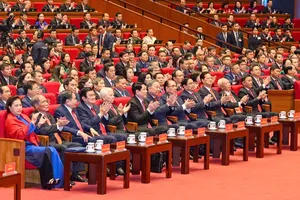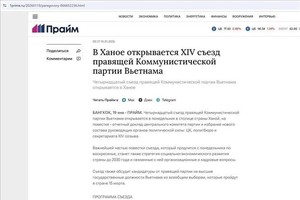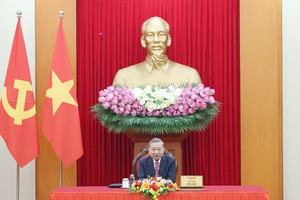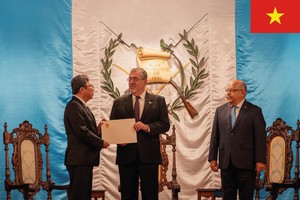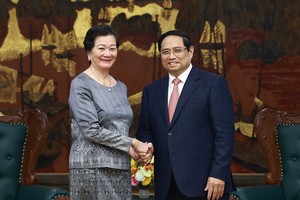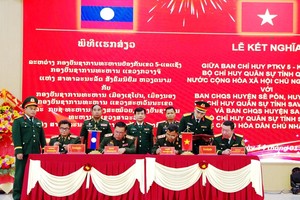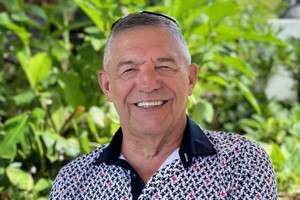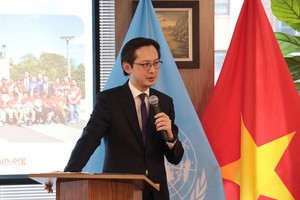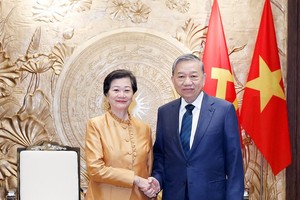ISTANBUL (AFP) – A roadside bomb blew up a bus carrying military families in Istanbul on Tuesday, killing three soldiers and a girl, as Kurdish rebels stepped up their separatist attacks.
Prime Minister Recep Tayyip Erdogan blamed the blast on the banned Kurdistan Workers' Party (PKK), which had threatened attacks in Turkish cities after targeting the military in the southeast.
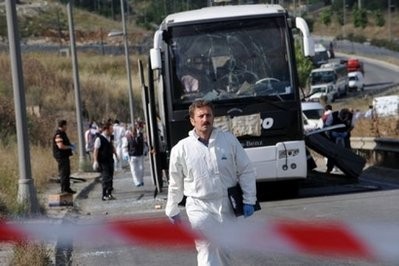
"The terrorist organisation knows very well that it will reach nowhere with such attacks... This is a deadend," Erdogan said in parliament in Ankara.
There was no formal claim of responsibility after the Istanbul bomb and noone was immediately detained, officials said.
The bus, carrying soldiers and their families, was passing through the Halkali district, a suburb on Istanbul's European side which is home to military lodgings, when the bomb went off early Tuesday.
"This is a terrorist attack," Istanbul Governor Huseyin Avni Mutlu told reporters. "According to initial information, it was a remote-control bomb planted at the roadside."
Three soldiers, on their way to work at the headquarters of Istanbul's paramilitary police, and a 17-year-old girl, the daughter of an officer, were killed.
Twelve other people were injured and two were in serious condition, Mutlu said.
Police cordoned off the vehicle, whose windows were shattered and had a large hole in its trunk, an AFP photographer said.
The Turkish army said seven PKK militants were killed overnight in two separate clashes.
Five rebels were shot dead after they attacked a gendarme station in southeast Turkey, killing one soldier. Two others were killed in a security operation in the northwest.
The PKK, listed as a terrorist group by Ankara and much of the international community, threatened attacks in Turkish cities as it killed 12 soldiers over the weekend.
Most of the troops were killed when dozens of rebels assaulted a border unit at the Iraqi frontier, prompting a Turkish air raid on PKK hideouts in northern Iraq, where the rebels have long taken refuge.
The PKK has stepped up its violence since its leader Abdullah Ocalan, who is held in a Turkish prison, said through his lawyers last month that he was abandoning efforts to end the 26-year Kurdish conflict through peace talks with the government.
Ankara has rejected dialogue with the PKK though it has sought to boost Kurdish freedoms and economic development in the southeast in a bid to discourage separatism and cajole the rebels into laying down arms.
The faltering initiative, announced last year, has met with public hostility amid persisting PKK violence, but Erdogan insisted Tuesday he remained committed to reform.
"We will not step back... We will not disappoint our (Kurdish) people once again," he said. "The terrorist organisation can never be the representative or the spokesman of our Kurdish citizens."
The PKK targets mainly the security forces but it has carried out bomb attacks on civilians in the past.
In 2008, the group was blamed for two explosions at a crowded street in Istanbul's Gungoren district, killing 17 people and wounding more than 150.
In 2005, five people, among them Irish and British tourists, were killed when a PKK militant detonated a bomb on a minibus in the Aegean resort of Kusadasi.
The PKK took up arms for self-rule in the mainly Kurdish southeast in 1984, sparking a conflict that has claimed some 45,000 lives.
